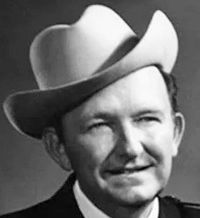A Quote by Claude Levi-Strauss
While I complain of being able to glimpse no more than the shadow of the past, I may be insensitive to reality as it is taking shape at this very moment, since I have not reached the stage of development at which I would be capable of perceiving it. A few hundred years hence, in this same place, another traveller, as despairing as myself, will mourn the disappearance of what I might have seen, but failed to see.
Related Quotes
My hold on the past and the future is precarious and my possession of my own time is always postponed until a stage when I may fully understand it, yet this stage can never be reached, since it would be one more moment bounded by the horizon of its future, and requiring in its turn, further developments in order to be understood.
The simulator is the stage in-between television and virtual reality, a moment, a phase. The simulator is a moment that leads to cyberspace, that is to say, to the process because of which we now have two bottles instead of one. I might not see this virtual bottle, but I can feel it. It is settled within reality. This explains why the word virtual reality is more important than the word cyberspace, which is more poetic.
To affirm life is to deepen, to make more inward, and to exalt the will-to-life. At the same time the man who has become a thinking being feels a compulsion to give every will-to-live the same reverence for life that he gives to his own. He experiences that other life as his own. He accepts as being good: to preserve life, to raise to its highest value life which is capable of development; and as being evil: to destroy life, to injure life, to repress life which is capable of development. This is the absolute, fundamental principle of the moral, and it is a necessity of thought.
A Hundred Years From Now Well a hundred years from now I won't be crying A hundred years from now I won't be blue And my heart would have forgotton she broke ever vow I won't care a hundred years from now Oh, it seem like yesterday you told me You couldn't live without my love somehow Now that you're with another it breaks my heart somehow I won't care a hundred years from now * Refrain Now do you recall the night sweetheart you promised Another's kiss you never would allow That's all in the past dear it didn't seem to last I won't care a hundred years from now * Refrain
It may be said of some very old places, as of some very old books, that they are destined to be forever new. The nearer we approach them, the more remote they seem: the more we study them, the more we have yet to learn. Time augments rather than diminishes their everlasting novelty; and to our descendants of a thousand years hence it may safely be predicted that they will be even more fascinating than to ourselves. This is true of many ancient lands, but of no place is it. so true as of Egypt.
If you go back back a few hundred years, what we take for granted today would seem like magic - being able to talk to people over long distances, to transmit images, flying, accessing vast amounts of data like an oracle. These are all things that would have been considered magic a few hundred years ago.
Adolescence has been recognised as a stage of human development since medieval times--long, long before the industrial revolution--and, as it is now, has long been seen as a phase which centers on the fusion of sexual and social maturity. Indeed, adolescence as a concept has as long a history as that of puberty, which is sometimes considered more concrete, and hence much easier to name and to recognize.
I did not want to move. For I had the feeling that this was a place, once seen, that could not be seen again. If I left and then came back, it would not be the same; no matter how many times I might return to this particular spot the place and feeling would never be the same, something would be lost or something would be added, and there never would exist again, through all eternity, all the integrated factors that made it what it was in this magic moment.
There's no question that protectionist or sort of moral suasion efforts like this can make a difference on a case-by-case basis. We have seen it in the past. It will probably save a few thousand, possibly more, jobs this time. But if the economics are saying that this is an expensive place to produce stuff, it's very hard to see that turning that around. That's why it would be more useful to focus on some of the other points that I think Donald Trump was making about making US a better place to manufacture.
We have seen very clearly over these past years that there are quite a few people who are sceptical, or let us put it another way, are cautious about the development of Russian-American relations, but the underlying fundamental interests of the United States and Russia demand that our relations be normalised.




































